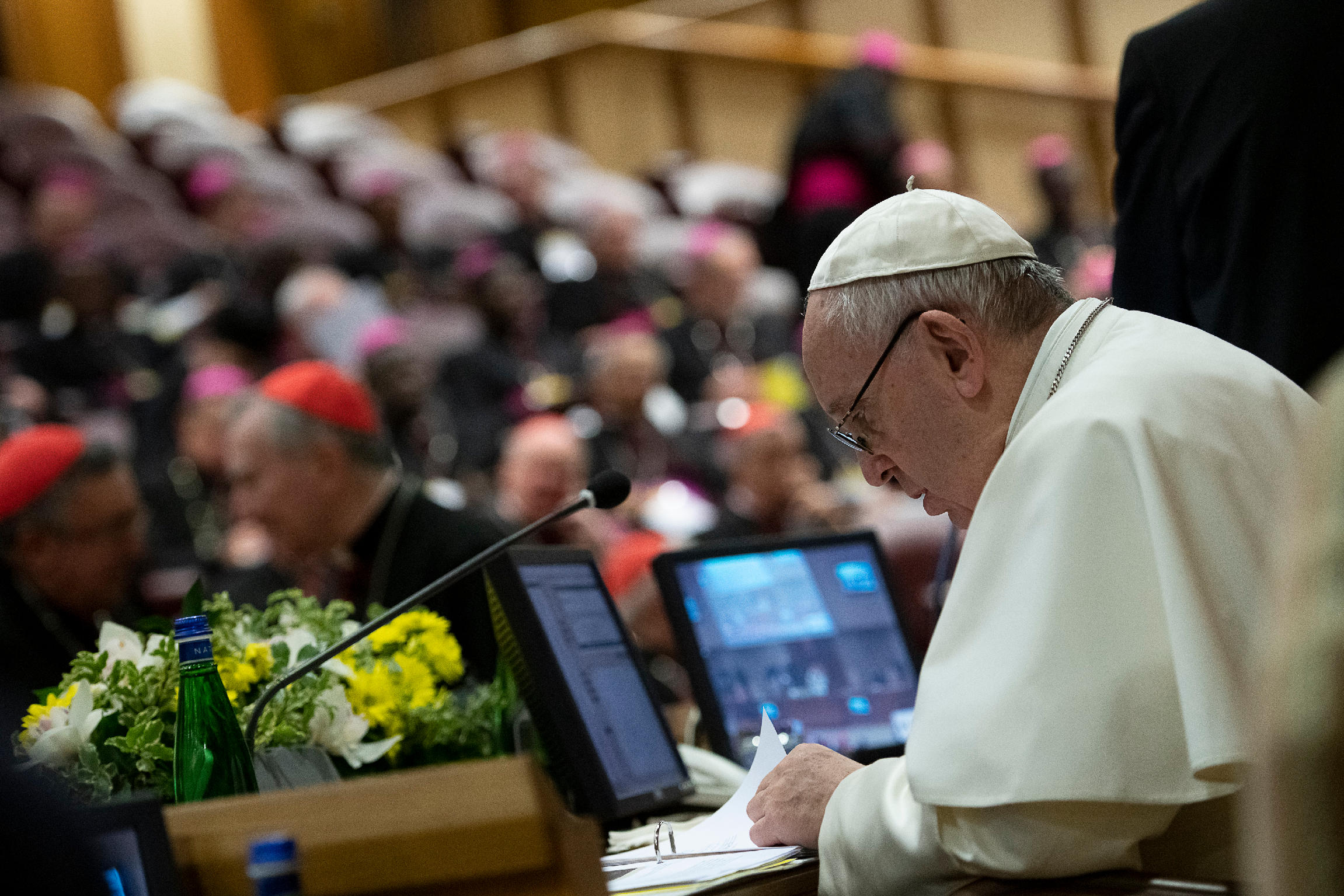NOTE
We awaited this meeting with some fear: fear of the press coverage, of the public opinion; we feared the bad impression in front of the whole world and before the victims. We are now discovering that precisely because of the courage of their cries of pain, as their pain became also our pain, something new and previously unimaginable was occasioned: a general conversion of life, in the understanding that mediocrity, (the root cause of every scandal) is a scandal per se, and that it must be combated inasmuch as it represents a distortion of our identity. For that reason this tragedy can be transformed into grace, a grace for the whole Church, a providential time for an ever greater heart as pastors. It’s the time of God! We are grateful to the victims and to their magisterium!

It happened also at the Synod of past October: the Bishops’ Synod on young people gradually developed into the Synod of young people on the Church, in the same way the meeting on the protection of minors of the Presidents of Bishops’ Conferences with the Pope in the Vatican gave a strong voice and highly acknowledged the authoritativeness of the survivors. Perhaps this is the fruit of synodality when it becomes a path of discernment inside the Church, but in all respects this symposium has increasingly placed the focus of attention on the victims of abuse and on their suffering, as a cry of protestation, a plea that it may never happen again, the release of a burden that was concealed for far too long, a horrific story of repugnant violence and a courageous provocation to all those who need to understand once and for all, leaving no more room for excuses. And the Church listened. Not only, she let herself be hurt by those same wounds; she let herself be converted by listening and embracing.
Because this is the way it should be, it’s a necessary passage. And perhaps the Church understood this and experienced it in the days of the Summit in Rome as had never happened before.
The victims change our hearts, they make us understand the gravity of the violence they were subjected to, they show us the abyss of suffering that the abuser has plunged them into, they disprove the false belief that it’s not enough to show understanding and sympathy but it’s necessary to feel and share their suffering.
And before, to recognize in their scars those of Christ, Whose Passion continues in every abuse survivor. There is also another step that we are drawn towards after embracing the victims: it’s impossible to relate to those stories – the degrading spiral of sexual abuse, its progression, deceit, hypocrisy, violence – without feeling that those stories belong to us. Not because we are all exposed to the fall, but because it did not happen in a vacuum, nor is it the exclusive business of the predator. In fact it occurred inside a community with a culture of abuse, whose act of concealment occurred with everyone’s contribution. We are all part of that story. Nobody more than a victim (especially in the case of a woman victim) can make this understood and make us aware of the extent of an articulated spectrum of abuse: abuse of power, of conscience, of feelings… as well as of our ministry, of our role. It’s even possible to abuse of God … making us feel the burden of shame for a church (that hopefully no longer exists!) that deemed it more important to protect her reputation and that of her members than to embrace the suffering and try to heal the wounds of the victims; this leads us to accept being humiliated before the public opinion for having betrayed the trust of so many people, the young and the old; and it leads to us ask for the victim’s forgiveness for having inflicted psychological as well as spiritual pain. The abuse perpetrated by the man-of-God destroys the Divine image in the victims, it distorts it, as if God had somehow been an accomplice to that act (and to those who covered it up).
In that respect it’s terrible to think that a large majority of abusive priests never asked forgiveness, never shed a tear for the desperation they produced!
We awaited this meeting with some fear: fear of the press coverage, of the public opinion, we feared the bad impression in front of the whole world and before the victims. We are now discovering that precisely because of the courage of their cries of pain, as their pain became also our pain, something new and previously unimaginable was occasioned: a general conversion of life, in the understanding that mediocrity, (the root cause of every scandal) is a scandal per se, and that it must be combated inasmuch as it represents a distortion of our identity. For that reason this tragedy can be transformed into grace, a grace for the whole Church, a providential time for an ever greater heart as pastors. It’s the time of God!
We are grateful to the victims and their magisterium!
That’s why we must continue to open our hearts to the act of listening, even when they continue contesting us and demand concrete measures for transformation: their anger is the wrath of God (Pope Francis). Not embracing them would amount to a new abuse.